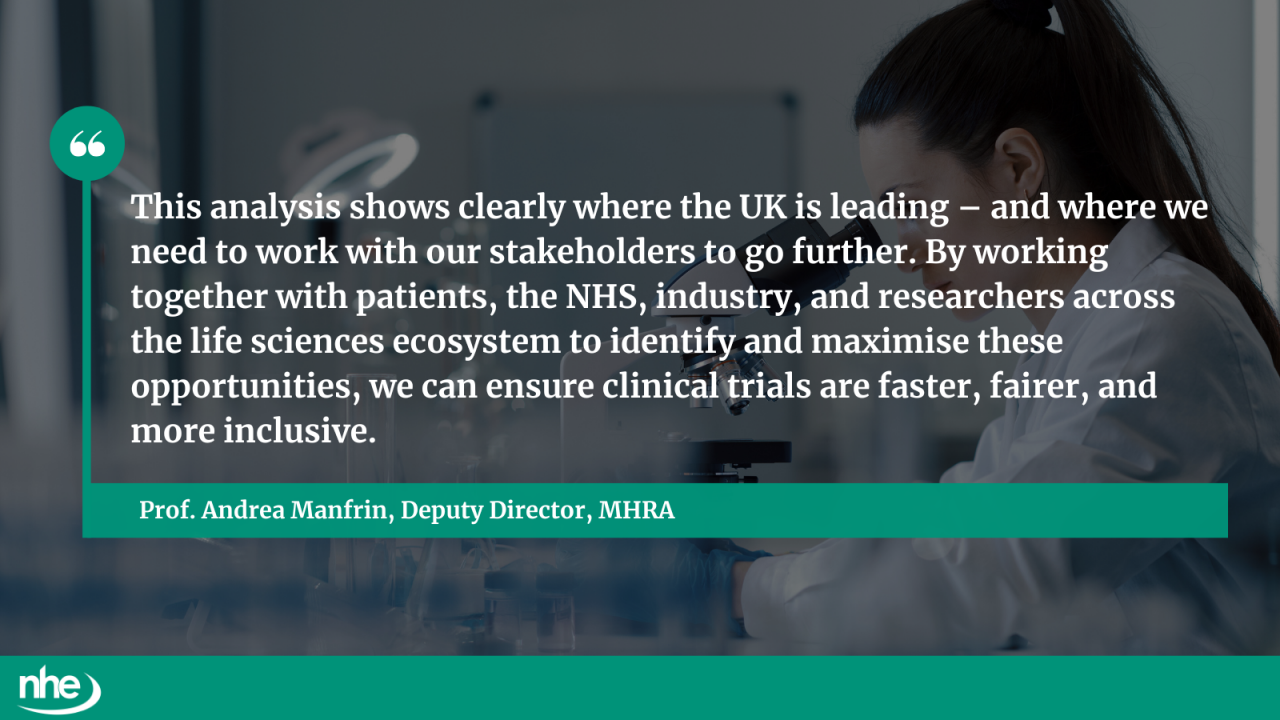The Medicines and Healthcare products Regulatory Agency and the University of Liverpool have published the first-ever analysis of the UK clinical trial landscape, revealing the country's global leadership in clinical research.
The report, featured in the British Journal of Clinical Pharmacology, provides a detailed picture of the UK's clinical trials, highlighting strong innovation and identifying key opportunities to deliver more life-changing treatments for patients.
The MHRA is leveraging these insights to enhance the UK's world-leading clinical research by implementing new clinical trials regulations. These regulations aim to create a more efficient, streamlined, and adaptable framework. By partnering with patients, the NHS, industry, and academia, the MHRA will support increased research into underrepresented conditions, improve diversity in trial participation, and attract further global investment in innovation.
With the global clinical trials market expected to nearly double to over £80 billion by 2032, the analysis will help shape policies that bring innovative medicines to patients, attract investment, accelerate medical innovation, and expand trial access for UK patients.

Professor Andrea Manfrin, MHRA Deputy Director and lead author of the study, commented:
“Clinical trials are the backbone of medical progress, essential for developing new medicines and advancing our understanding of diseases. This analysis shows clearly where the UK is leading – and where we need to work with our stakeholders to go further. By working together with patients, the NHS, industry, and researchers across the life sciences ecosystem to identify and maximise these opportunities, we can ensure clinical trials are faster, fairer, and more inclusive. Better trials mean better, more effective treatments, reaching NHS patients as quickly and as safely as possible.”
Key findings from the analysis of 4,616 clinical trials submitted between 2019 and 2023 include:
- The UK is a hub for pioneering research, with one in eight trials testing treatments in humans for the first time. Strong commercial investment is evident, with 85% of trials industry-sponsored.
- Cancer trials dominate, making up nearly a third of all studies, while other major diseases, such as heart disease, receive less focus. Chronic pain, respiratory conditions, and mental health disorders are among the least researched, despite their significant impact on public health.
- Both sexes are included in most trials (90%), but male-only trials (6.1%) are nearly twice as common as female-only studies (3.7%). Pregnant and breastfeeding women are represented in only 1.1% and 0.6% of trials, respectively.
- Cutting-edge treatments, such as gene and cell therapies, represent a growing clinical area but make up only 3.4% of trials.
The MHRA is working with partners across the life sciences sector to increase research and streamline approvals through the Innovative Licensing and Access Pathway (ILAP). Efforts to improve diversity in trial participation include developing joint guidance with the Health Research Authority (HRA) and supporting advanced therapy trials through collaboration with researchers via the Centres of Excellence for Regulatory Science and Innovation (CERSIs).
These initiatives are part of broader clinical trials reform, including new legislation to streamline trial processes in the UK. Backed by the MHRA and healthcare system partners, these changes aim to protect patient safety, boost global investment, and reduce unnecessary red tape, helping bring new treatments to patients faster.
As the government advances the Life Sciences Sector Plan and the 10 Year Health Plan, these findings will shape policies to ensure clinical trials deliver maximum benefits for patients, the NHS, and the wider economy.
Image credit: iStock



















